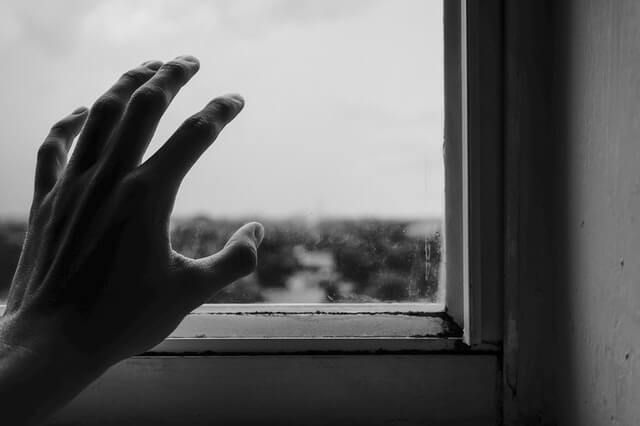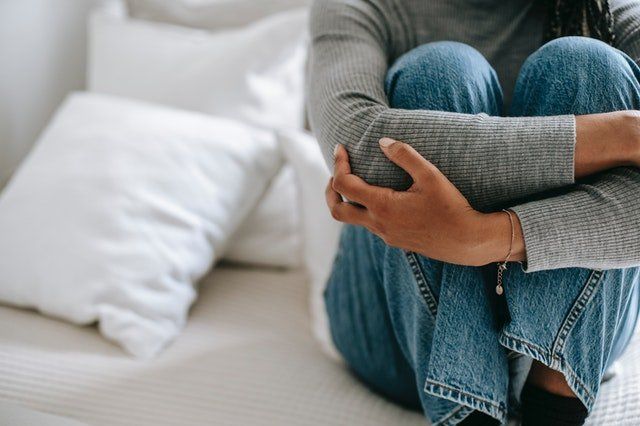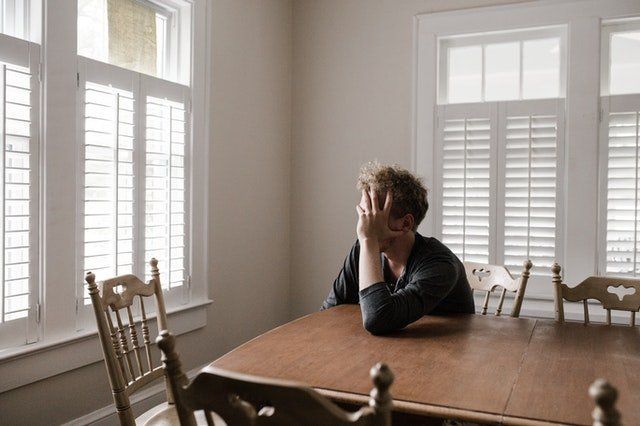Many people think that loss and grief only happen due to experiencing the death of a loved one. However, this isn't true. Grief is a
normal human emotion. It's a response to losing someone or something we care a lot about.
Grief can happen in response to life events like the end of a relationship or job loss. It can also occur when we lose an experience we had hoped would happen a certain way, like a graduation or wedding. This guest post by Kim McGuiness, M.Ed., LPC, NCC, will explain what these challenging feelings are, when they happen, and how healthy coping with loss and grief can help us move into the next phase of our lives.
What is grief?
Dealing with grief and loss has been a part of our lives, starting in 2020 when Covid-19 turned our lives upside down. Some experienced the loss of a loved one, while many experienced the loss of an opportunity or experience. We often assume that the grieving process only occurs when we lose loved ones.
However, this is misleading. Grief is a common feeling that we experience when we lose a person or thing we love and value. The more we love or value a person or thing that we have lost, the greater the feelings of grief and loss. Therefore,
when we lose what we value greatly, we experience grief.
How do you handle or cope with loss and grief?
It would be so much easier if loss and grief looked the same for everyone or if the grief process and emotional experience followed a linear path. But grief and loss look different for each person. Coping with loss and grief usually doesn't have a clear start and end date. Some people have substantial emotional responses, while others seem to be barely impacted. Regardless of how we individually cope with loss and grief, the one thing that is the same for everyone is that our emotional experience is not permanent.
How do grief and loss affect our mental health?
To understand what can result during grief and loss, we need to see how the emotional process from these experiences can help create new chapters or stages in our lives. The pain of loss can often lead to changes in ourselves or our lives that we could not have expected. These changes can be the result of life circumstances and/or life events.
One example of a life event that results in grief and sadness is job loss. We can use this opportunity to notice how our identity may have become tied to our position and the impact this had on our life. It also provides a moment to identify what matters to us now and what might be next in our careers and lives. A loss like this can also encourage us to expand and develop our interests and abilities. As a result, we may choose to pursue a different job or career opportunities. Then, we're left having to cope with this unwanted and
unexpected change.
Divorce is another life event that usually involves coping with loss and grief. People often have to cope with multiple losses and stressors at once, like moving, financial stress, and losing significant friendships. However, it can also lead to thinking about the role we played in our marriage and what did not work. This process can help us change how we deal with our most intimate relationships.
During Covid, many of us have had to deal with the loss of a memorable event such as holiday gatherings, weddings, graduations, and traditions. Losing what we had hoped for leads to feelings of grief. However, over time, we can make more sense of the loss and change. We can also use these changes to create new traditions and relationships. As we shift our focus, we can feel gratitude even in times of loss.
3 strategies for coping with grief and loss:
1.
Feel the loss.
There are over a dozen types of grief, and they all look different from one another. With so many forms of loss, it can be easier to understand why grief can look different based on the person and situation.
That is why the first strategy for managing our symptoms of loss is actually to feel the loss. When we try to push aside or avoid our feelings, they can show up in more vigorous forms.
We might be edgy or moody toward people trying to comfort us. However, that's because we haven't found a place for them within our emotional process. We need to practice bouncing back, growing, and exercising
self-care on our own before we can let others help us cope with loss and grief.
2.
Let go of the "shoulds" and "musts" that others put on us.
It can be challenging to hear people tell us what we "should" or "must" do or not do in order to feel better. Each of us experiences and processes loss and grief differently because we arrive at the situation with different backstories and life experiences.
Whatever we are feeling in the moment makes sense to us. We have the power and choice to stay in that moment. We can give ourselves permission to be human and validate our needs.
3.
Become comfortable with the pendulum of grief.
Grief is like a pendulum. Emotions go back and forth between sadness and happiness over time. This back-and-forth isn't a sign that we haven't made progress or are getting worse. It is actually a sign that we're moving forward in coping with the grief and loss.
Events or memories of even small things can
trigger grief out of nowhere. Growing with our grief and loss means giving ourselves the space to make meaning out of our loss at the moment. The good feelings will inevitably be interrupted by sadness, and we grow by allowing ourselves the room to feel the pain of our loss. When we give ourselves space, we honor the person/thing we've lost while building our resilience. Once we've honored the sadness, we can create room for happiness to come back.
Next steps in learning to cope with loss and grief
Grief and loss are inevitable. They are parts of being human. They're also one of the most difficult challenges we have to deal with. To make it through, we need to balance honoring our feelings and experience with learning more about ourselves.
While you may want to be alone or not talk about your feelings, it's most helpful to seek support to help you through the loss. If you have experienced loss and are feeling grief, consider seeking help from a licensed mental health professional. Many people also seek out support groups.
Grief counseling can help you identify and work through your emotions. This might involve individual therapy and/or seeking out group support. These support systems can also help you understand what the loss means to you and the role that it's playing in your life. You'll also learn helpful coping strategies that you can use now and in the future.
As a result of this work and support, you can gain a greater sense of meaning in your life and make healthier decisions about moving forward in this next phase.
The original version of this post was published on January 11, 2021 in
https://getcenteredcounselingstl.com/3-steps-for-dealing-with-grief/









